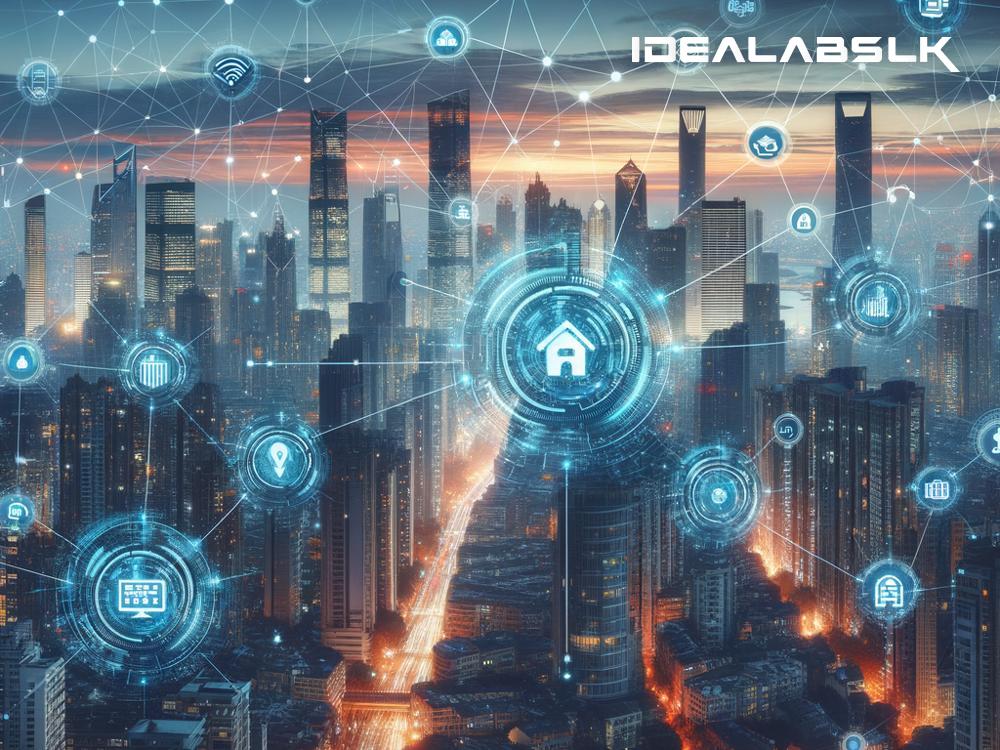Decentralized Finance and Real Estate: What’s Next?
In the ever-evolving world of finance and real estate, a new chapter is being written, and it's called Decentralized Finance, or DeFi for short. But what exactly is DeFi, and how is it changing the game for real estate investments and transactions? Let's take a simple dive into this intriguing topic and explore what the future holds.
Understanding Decentralized Finance (DeFi)
Imagine a world where you could carry out all your financial transactions - borrowing, lending, investing, without going through a bank or any traditional financial institution. That’s the essence of DeFi. It operates on blockchain technology, particularly using Ethereum, to create a system that is open, transparent, and operates 24/7, without the need for a middleman.
Now, think of blockchain as a digital ledger that is visible to everyone but cannot be tampered with. This ensures that every transaction is secure, fair, and easily traceable, laying the ground for trust in this decentralized environment.
The Connection Between DeFi and Real Estate
Real estate has always been considered a solid investment, but it comes with its set of complications - lengthy processes, high entry barriers, and often, the need for a trusting relationship with financial institutions. DeFi is stepping in to shake things up, offering new ways to invest, divest and manage property.
Fractional Ownership
One of the revolutionary aspects of DeFi in real estate is the concept of fractional ownership. This approach allows multiple investors to own a piece of property, making investing in real estate more accessible to those who may not have huge sums of money. Through blockchain, these ownership pieces can be bought, sold, or traded with ease, much like stocks in the stock market.
Streamlined Processes and Smart Contracts
Another game-changer is the use of smart contracts in the DeFi space. In real estate transactions, there's a lot of paperwork and numerous steps that need to be verified by various parties. Smart contracts automate these processes on the blockchain, where the terms of a deal are programmed and executed automatically once conditions are met. This not only speeds up transactions but also reduces the chance for errors or fraud.
Increased Transparency and Accessibility
The transparency offered by blockchain technology means that every transaction is recorded and can be seen by anyone involved. This level of openness builds trust among parties. Moreover, by removing the need for middlemen, DeFi platforms make entering the real estate market more straightforward, potentially lowering costs for investors and sellers.
What’s Next?
The combination of DeFi and real estate is still in its early stages, but it’s rapidly gaining momentum. Here are a few areas where we might see significant advancements:
-
Global Investing Made Easier: With DeFi, the geographical barriers that once hindered international real estate investments could dissolve. Investors anywhere in the world can partake in opportunities globally without the hassles of currency exchange or finding local financial institutions.
-
Tokenization of Properties: This involves converting the value of real estate into digital tokens on the blockchain. It opens up even more doors for fractional ownership and can lead to the creation of new and seamlessly tradeable real estate assets.
-
Rise of Decentralized Autonomous Organizations (DAOs): Imagine collective property management without a traditional management company. DAOs in real estate could allow for collectively owned properties managed through democratic voting on the blockchain.
-
More Inclusive Financing Options: DeFi can provide alternative ways for property buyers to secure financing, bypassing traditional credit checks and loan processes. This could include peer-to-peer lending systems, where individuals lend and borrow directly from each other based on mutually agreed terms.
Challenges Ahead
As exciting as the DeFi and real estate fusion sounds, there are hurdles to overcome. Regulatory clarity is still evolving, and there’s a significant need for robust security measures to protect against hacks and fraud. Additionally, the concept requires a cultural shift, with both investors and the real estate industry needing to adapt to these digital, decentralized systems.
Wrapping Up
The fusion of Decentralized Finance and real estate is opening up new horizons for investors, sellers, and buyers alike. The journey is just beginning, and as technology advances, we are bound to see innovative solutions that make investing in and owning property easier, more transparent, and more accessible to a broader audience. However, with innovation comes responsibility, so navigating this new terrain will require careful consideration of the challenges and potential risks involved.
By embracing the potential of DeFi in real estate, we’re not just moving towards a more inclusive and efficient market; we’re paving the way for a financial revolution. The question isn't so much about what’s next, but how quickly we can adapt to keep up with these exciting changes. Let's buckle up for the ride into the future of real estate.

